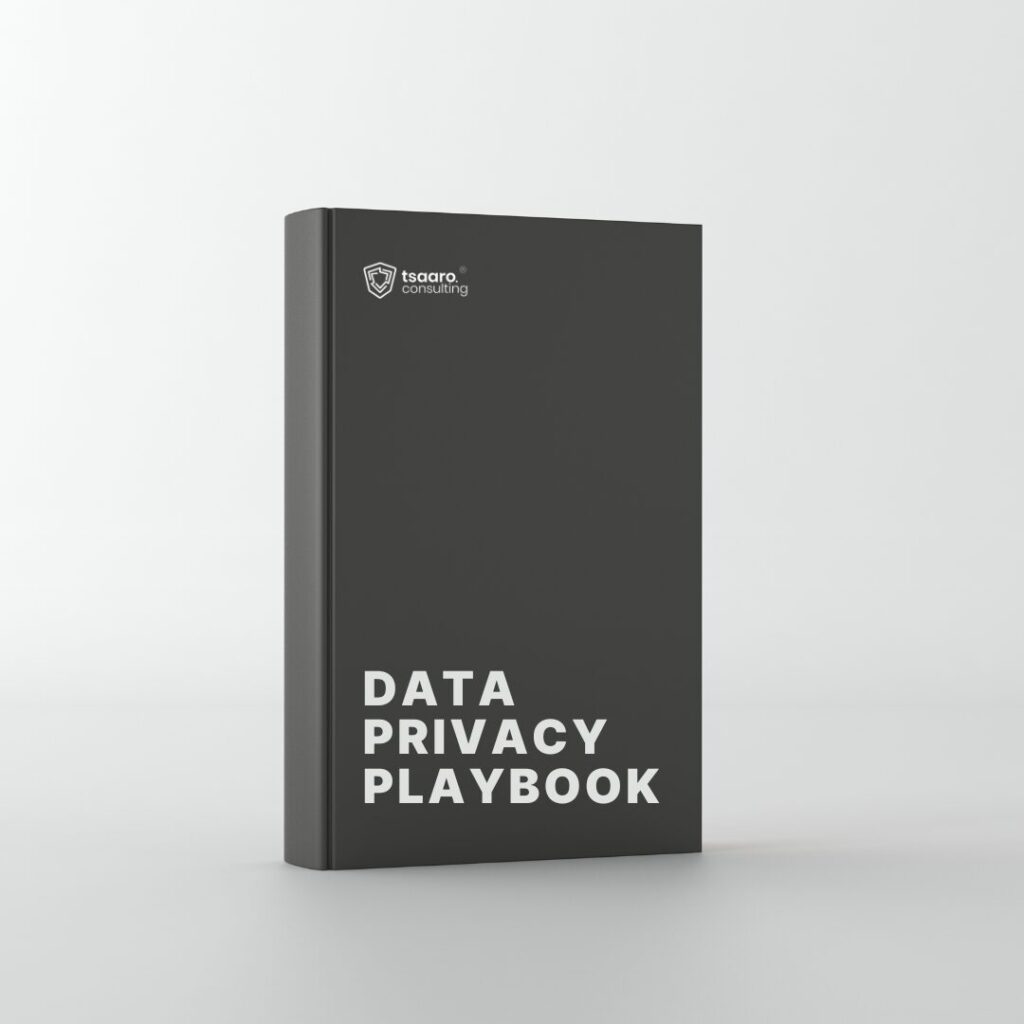Generative AI Use Policy
With this policy, we aim to provide transparency and accountability in our use of AI, while also unleashing its potential to drive innovation and enhance our services. Join us as we explore the possibilities of AI and shape the future together. Check it out now!
Policy Statement
The objective of this policy is to outline the principles governing employees’ access to and use of external Artificial Intelligence (AI) tools and services (hereafter referred to as AI systems), to safeguard the company’s sensitive and proprietary data and the privacy of its users.
“AI systems” for the purpose of this policy include but are not limited to chatbots, generative AI tools, data analytics tools, image recognition software, natural language processing systems, and statistical models…… Read More
Scope
This policy applies to all employees of Tsaaro (hereafter referred to as our Organisation or the Organisation) who are authorized to use external AI Systems. However, this policy shall also include employees of the organisation who use AI systems in their individual/personal capacity for work-related purposes. Whether an employee uses an AI system in an official or personal capacity, this policy serves as a guide for responsible and ethical use of the language model in the organisation.
Terms of Usage
The terms of usage of this policy are as follows:
(a) Employees must only use AI Systems for authorized and legitimate business purposes. Any use of AI systems for personal, illegal, unethical, or unauthorized purposes is strictly prohibited and may result in disciplinary action or termination.
(b) Employees must use AI systems in a responsible and professional manner. Employees must not use AI systems to generate content that is false, misleading, defamatory, offensive, abusive, harassing, discriminatory, or otherwise inappropriate or harmful to the company’s reputation or interests.
(c) Employees must exercise caution and discretion when using AI systems. Employees must not rely on AI systems as the sole or primary source of information or content. All AI-generated content must be proofread and checked for accuracy by a human before being used for any business purpose. Employees must also acknowledge and cite the source of the content generated by AI systems when appropriate……. Read more
Confidentiality Obligation
Any confidential information / proprietary code belonging to the company must not be shared with AI systems as a prompt for response.
Any breach in confidentiality shall result in disciplinary action that can extend to the termination of employment based on the quantum of monetary or non-monetary loss caused to the organisation.
Policy Implementation
Duties of Data Protection Officer:
(a) The Data Protection Officer (DPO) shall act as the designated AI Officer who would be responsible for supervising the implementation of this policy, offering direction and support to staff members, and ensuring compliance with pertinent laws and regulations.
(b) Ensure that the AI initiatives utilised in the organisation are developed and implemented ethically, in accordance with applicable laws and regulations, and with ethical considerations in mind.
(c) The DPO must periodically revise the AI policy as per the AI utilisation of the organisation, and suggest possible revisions to the policy. Any misuse of the AI systems, which can lead to potential legal, ethical or regulatory issues, must be reported to the DPO……. Read more
Checkout the latest privacy reports
Checkout the latest Whitepapers
Key Features of this Policy Include:
Authorization
The policy outlines the circumstances under which employees may use third-party artificial intelligence (AI) tools.
Security and Privacy
The policy places a strong emphasis on the value of safeguarding confidential information and intellectual property.
Compliance with Legal and Ethical Standards
According to the policy, employees may need to make sure that using external AI technologies conforms with all relevant rules, laws, and ethical guidelines.
Risk Assessment and Evaluation
Employees may be required to assess the dangers of employing external AI technologies, such as possible biases, security flaws, or compatibility problems.
Training and Awareness
The policy may place a strong emphasis on the value of educating employees on how to use external AI products responsibly and effectively.
Intellectual Property
The policy would address intellectual property concerns by clarifying the ownership rights of the AI models and other content generated using the external AI tools.







